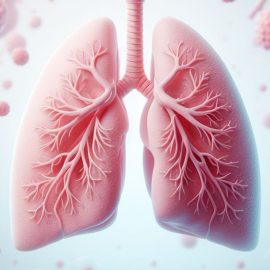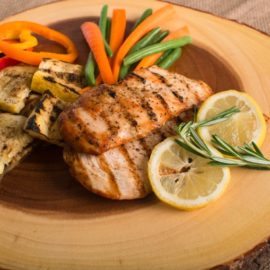

This article gives you a glimpse of what you can learn with Shortform. Shortform has the world’s best guides to 1000+ nonfiction books, plus other resources to help you accelerate your learning.
Want to learn faster and get smarter? Sign up for a free trial here .
How well do you understand your body? Do you have a good relationship with food?
From books on dieting and fitness to books on the human body, there are numerous sources to help you reach your physical peak. Knowing how your body operates and what’s good for it is just the first step in your health journey.
Here are the best 20 books on nutrition and health to get you started.
Best Books on Nutrition, Food, and Dieting
Eating right is just the first step in getting healthy, but it’s an important step. If not done correctly, intense dieting can lead to disordered eating and an unhealthy relationship with food. Thankfully, these books make eating healthy easy so you can still enjoy food and live a healthy lifestyle.
If you’ve ever tried to lose weight, you’re probably aware of all the conflicting advice about what you should eat. Should you go on a low-carb diet, a low-fat one, or a liquid one? Eat one large portion in the morning, smaller portions throughout the day, or practice fasting?
In How Not to Diet, Michael Greger, physician and best-selling author of How Not to Die, adds a much-needed voice of clarity to the world of weight loss. He draws on extensive scientific research to explore the healthiest and most efficient way to lose weight and keep it off.
This book explores Greger’s advice, covering:
- How eating processed foods and animal products leads to weight gain
- Why eating plant-based foods and legumes reduces the calories your body stores as fat
- What dietary changes will help you shed excess pounds and keep them off
Picture the end of your life. Do you want to die from heart disease? Cancer? Diabetes?
In How Not to Die, Michael Greger argues that a plant-based, whole-food diet has been scientifically shown to reduce the most common diseases leading to death.
Citing thousands of references from scientific literature, Greger covers the top 15 causes of death (from heart disease to Parkinson’s) and describes how diet can reduce each cause of death. He then gives his recommendation for “The Daily Dozen” foods to eat to maximize health benefits.
American society is inundated with food. There are thousands of options for what to eat and a myriad of ways to eat it. So why does food need defending? In his book In Defense of Food, Michael Pollan distinguishes between real food and processed food and how the reliance on the latter leads to a society plagued by Western diseases.
From our reliance on industry and science to dictate what we should and shouldn’t eat to the loss of traditional food cultures, the Western diet has wreaked havoc on Americans and created one of the unhealthiest societies in the world. But we can reverse the damage if we repair our relationship with food and support the health of the food chain.
In Fast. Feast. Repeat., Gin Stephens explains how intermittent fasting (IF) can help you lose weight, feel better, fight disease, and live longer. Stephens breaks down the cutting-edge science that supports fasting as a powerful practice for overall health, and she explains how to implement intermittent fasting as a sustainable, flexible lifestyle choice.
After Stephens, a former educator, lost over 80 pounds with intermittent fasting, she created online support groups to bring IF to others. Soon after, she self-published Delay, Don’t Deny, her first book about IF, and followed it up with Fast. Feast. Repeat. In this book, you’ll learn why fasting beats traditional dieting, how to think like an intermittent faster, how to fast and feast for your unique body, and how to follow a four-week quickstart program to adapt to this new lifestyle.
In The Obesity Code, Jason Fung argues that for decades, we’ve misunderstood obesity and, as a result, have consistently failed in our efforts to curb its spread. To solve this epidemic, he asserts that we need a new, comprehensive theory of obesity. Fung presents this theory, arguing that obesity is a hormonal problem that causes overeating and weight gain, rather than a problem of willpower or self-control. He contends that overcoming it involves improving your diet and fasting regularly.
Fung is a Canadian nephrologist (kidney specialist) and head of the Intensive Dietary Management Program in Toronto. After witnessing diabetes patients gain weight from insulin treatment, he began to explore type 2 diabetes and obesity, two conditions that often lead to kidney disease. The Obesity Code, published in 2016, received positive reviews and has been called one of the most comprehensive treatments of obesity yet written. Today, Fung is recognized as an expert on fasting and obesity. He continued his investigative medical writing in The Diabetes Code (2018) and The Cancer Code (2020).
In this book, Fung explains how the prevailing model of obesity falls short and how Fung’s theory surpasses it. Then, he lays out his recommendations for what and when to eat and explains his perspective on intermittent fasting as the key to overcoming obesity.
The Omnivore’s Dilemma by Michael Pollan explores how we answer the question, “What should we eat.” It traces four types of food chains (or food production systems) from a food’s origin to its final destination, the dinner table. He examines how food production in the U.S. has evolved from small diverse farms to a mass production system of huge corn and animal farms operated on factory-based principles. This system has produced cheap, tasty but less healthy foods while making it difficult for us to make better choices by obscuring our food’s origins and ingredients. We have a viable alternative in true organic food, but to make better choices and influence change we must do the work of educating ourselves and giving up our addiction to convenience and unhealthy foods.
From the low-carb, high-fat keto diet to the whole-foods-based paleo diet, countless eating programs are promising to help you lose weight and be healthier. The Plant Paradox Program (PPP) is an eating and lifestyle program based on the way foods and products affect your body and immune system; it involves eating lots of the right plants while avoiding others to reach and maintain a healthy weight and live free of chronic and autoimmune diseases. The program is based on the premise that small things can cause big problems and the key to your health is less about what you add to your diet and more about what you remove.
In The Plant Paradox, you’ll learn:
- Why whole grains and mouthwash are making you sick—and fat
- How plants protect themselves against predators
- Why almost everything you think you know about healthy food is wrong
The Hacker’s Diet was written by John Walker, founder of the software company Autodesk. This is an engineer’s approach to weight loss, described in terms of control systems, feedback loops, measurement noise reduction, and practical problem-solving.
With so many contradictory theories of weight loss out there, this book cuts out the bull — it’s about calories in and calories out, period. If you’re fat, you’re fat because your eating control system is broken. To you, cutting back calories is intensely painful, but there’s little stopping you from overeating well beyond your daily maintenance calories.
It’s simple. But simple doesn’t mean easy. The key is to execute.
The systems and strategies described in this book are eminently practical, in that “I can’t believe I didn’t think of this before” way. In The Hacker’s Diet, learn:
- How your internal eating control system is broken, causing you to eat way more than you should
- The sane way to track your weight to avoid daily fluctuations of 2-4 pounds
- Why the first few days of dieting are the hardest that dieting will ever be
- What you have to do to maintain your ideal weight for the rest of your life
Fast Food Nation: The Dark Side of the All-American Meal shows how the fast food industry has reshaped the American economic system and imprinted itself on the nation’s culture since the 1950s. The industry has profoundly reshaped how American food is produced, marketed, and consumed. The book explores fast food’s exploitative marketing and labor practices, the destruction of the nation’s independent farmers, responsibility for the spread of deadly foodborne pathogens like E. coli, and the creation of a national obesity epidemic. Fast Food Nation shows us how fast food has exerted a decidedly negative influence on American life.
Americans might be the heaviest, sickest people in the world. The China Study suggests that we can lose weight and lower disease rates by removing animal foods from our diets.
What sets the whole foods, plant-based diet apart from the fads is the extensive research behind it, detailed and distilled in this book. The evidence is compelling and the message is clear: Animal foods lead to disease; plant foods prevent and treat it.
Learn how a plant-based diet can give you more energy, reverse your heart disease, decrease your cancer risk, outsmart your genes, and make your life longer and healthier.
Best Books to Understand Your Body
If you don’t know your own body, you’ll have a difficult time keeping it in shape. Do you know how your body digests food? How does breathing affect your physical health? These questions and more are answered in the books below.
Author Tim Ferriss has spent years studying how to improve the human body—he interviewed and trained with experts, studied scientific literature, and tried out what he learned on his own. In The 4-Hour Body, he distills the most effective 2.5% of what he discovered into programs you can use to improve six aspects of your body: losing fat and gaining muscle, enhancing sex, improving sleep, managing injuries, improving sports performance, and living longer.
Cancer is one of the most frightening diseases in the world today; it’s deadly and often extremely hard to cure. As such, doctors and researchers have spent enormous amounts of time and money trying to figure out exactly what cancer is, how it works, and how to cure it. The Cancer Code by Jason Fung is an overview of scientists’ major discoveries about cancer, starting from ancient times and continuing to the present day. This book will help you be more informed about this deadly disease.
Fung divides research trends into three different models of cancer, explores the strengths and weaknesses of each model, and discusses their implications for future cancer research and treatment.
According to Giulia Enders, the gut is a system of organs as complex and intricate as the brain. As you go about your day, your gut is hard at work breaking down food, delivering nutrients to your body, and even training your immune system to fight infection.
In Gut, Enders explains how your digestive system works and why it’s important to keep it healthy. In this book, Enders covers where the food you eat goes, what your appendix actually does, and how tiny organisms in your intestines influence your immune system (and possibly your mood).
Are spicy foods bad for you? Can sleep deprivation be fatal? In The Body, bestselling author Bill Bryson takes the reader on a whirlwind tour of the human body’s various systems. He examines how they work, how they can fail, and what can be done to fix them when that happens.
In this book, you’ll learn why your sense of smell is probably as good as your dog’s, how hot peppers increase your life expectancy, and why you should let your teenager sleep in.
Why do we get sick? Why hasn’t natural selection, over millions of years, prevented us from getting cancer, heart disease, and depression?
Our bodies seem at times to be faulty designs, prone to error and calamity. Diseases seem like mere accidents of evolution (like the appendix). Or perhaps natural selection just isn’t powerful enough to get rid of some diseases?
The science of evolutionary medicine says this thinking is totally, utterly wrong. Our bodies have evolved over millions of years as a set of compromises, largely in pursuit of reproductive fitness. Frankly put, whatever gets you to survive and have kids is going to persist in the gene pool, even if it causes you lots of disease and pain in adult life.
Why We Get Sick is an insightful and revelatory book on disease. After reading this book, you might never look at disease and humans the same way again.
In Why We Get Sick, you’ll learn:
- Why humans haven’t evolved to live for 200 years, and why we don’t regrow limbs
- Why women evolved to bear children, and why this has led to the classic male fear of commitment
- How the fact that we evolved in small tribes, and mass media, may increase depression
- Why we’ve evolved to dislike the sound of a baby crying
As we try to lead healthier lives, one thing we rarely consider is being mindful of how we breathe. Science journalist James Nestor argues that while the power of the breath is central to many Eastern traditions, it’s been largely ignored in the Western world. Modern medicine treats chronic congestion, sinus infections, and lung disease but puts little emphasis on teaching people how to breathe correctly. However, Nestor asserts that by learning how to breathe well, we’ll improve our well-being, balance our emotions, and find more energy to live the lives we want.
Breath will explain what Nestor says about how we’re breathing wrong, how we can do it better, and what amazing impact the power of breath can have over the body.
For all of recorded history, people have seen aging as an inevitable fact of life. Biologist and geneticist David Sinclair disagrees: He believes that old age is a deadly disease, and he’s dedicated his life to curing it.
Sinclair is a professor of genetics and co-director of the Paul F. Glenn Center for Biology of Aging Research at Harvard University. He argues that it’s not only possible—but inevitable—that we’ll learn to overcome the aging process. New medicines and technologies will increase our maximum lifespan and years of health until eventually, humans won’t have a maximum lifespan—we’ll stay young and healthy forever.
In Lifespan: Why We Age and Why We Don’t Have To, Sinclair discusses why aging happens, how we can prevent it, and how we might create a world where nobody has to die of old age.
When you’re unable or unwilling to say “no” to pressures in your life, your body may do it for you by creating illness. Many chronic illnesses have been linked to stress caused by our lifestyles, our conditioning as children, and our psychological coping mechanisms.
When the Body Says No is Dr. Gabor Maté’s exploration of the connection between stress and disease. Rather than just occasional external stress events, which are normal, Maté says that humans in modern society tend to experience chronic stress, which has a devastating effect on our bodies. He argues that much of our chronic stress is subconscious, so we may not even recognize it as stress.
This book examines Maté’s research and theories Maté, as well as his prescriptions for healing and avoiding stress-related disease.
Is there something you indulge in more often than you’d like? Maybe it’s checking social media, eating junk food, or binging shows and movies on streaming platforms. In Dopamine Nation, addiction treatment specialist Anna Lembke explores what causes these behaviors and how you can take back control. She explains both the neurological and emotional causes of overindulgence and provides clear actionables to help you stop.
In this book, you’ll learn about how pleasure and pain motivate you to consume, strategies for keeping your brain’s natural chemicals in balance, and solutions to the psychological reasons so many people have a hard time stepping away from their favorite indulgence.
In Being Mortal, surgeon Atul Gawande considers our experience of aging and dying in the 21st century. In his view, the modern approach to these stages of life undermines our ability to live well up to the end—to do better, we need to accept death as a natural part of the human experience and prioritize the well-being of the dying.
This book examines some of the ways we approach aging and death in our modern and Gawande’s ideas about how we might improve our experience of these profoundly important aspects of life.
Final Words
Nutrition is the foundation of a healthy body, and these books can help you build a nutritious diet that’s right for you. While the number of books on nutrition and health may be overwhelming, rest assured the books listed above will help you on your health journey.
Do you have any suggestions for books on nutrition and health? If so, leave them in the comments below!

Want to fast-track your learning? With Shortform, you’ll gain insights you won't find anywhere else .
Here's what you’ll get when you sign up for Shortform :
- Complicated ideas explained in simple and concise ways
- Smart analysis that connects what you’re reading to other key concepts
- Writing with zero fluff because we know how important your time is






